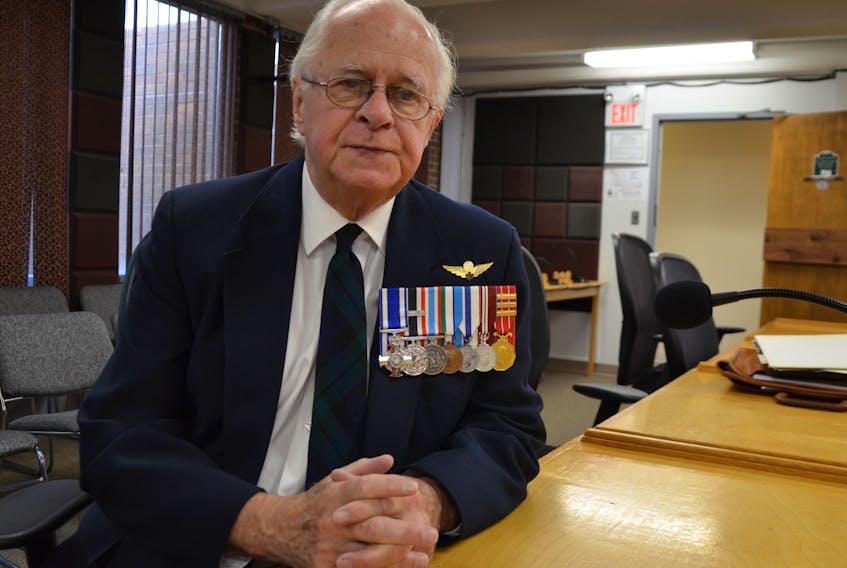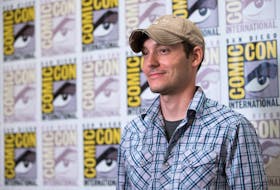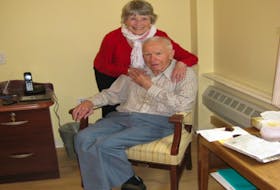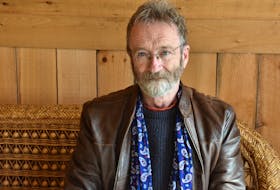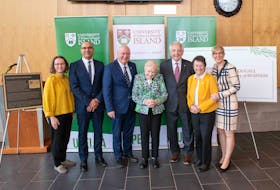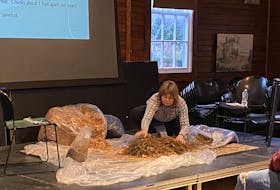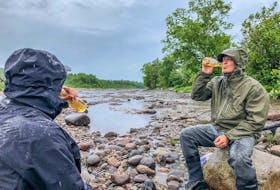CORNWALLIS PARK, N.S. - An Annapolis County man who has spent much of the past 50 years promoting peace said he’s honoured that he’s been asked to be part of Canada’s official delegation to Mons, Belgium for celebrations marking the 100th anniversary of the end of the First World War.
“I feel honoured, and I feel excited,” said Alex Morrison. “I spent well over 37 years in the Canadian Army as a regular force officer and then as honourary colonel for a number of years thereafter… and to be selected to be part of the official Canadian delegation to such an event is stirring and something of which I am humbly honoured.”
He’s been selected to be a member of the official Canadian delegation representing the Black Watch, the Royal Highland Regiment of Canada which is the regiment he first joined upon being commissioned as an officer in the Canadian Army.
Canadian soldiers are revered in Belgium, where they helped free the French-Belgium region between Quievrain and Casteau, and finally, on Nov. 11, 1918 they liberated Mons from the Germans. Mons commemorates the event every year.
Joined the Highlanders
Morrison joined the 2459 Cape Breton Highlanders Cadet Corp in 1955, and went to summer camp in Camp Aldershot. He later joined the reserve army and went back to Camp Aldershot as an instructor. He joined the regular army and was posted to the Black Watch in Gagetown, commanding his first platoon when he was 21.
He was a battalion intelligence officer, mortar platoon commander, served three years in Germany, where he was a company commander with 3 Canadian Mechanized Battalion, and spent a year at the headquarters of the Canadian Army in Lahr.
“I spent six years in New York as a member of the Permanent Mission of Canada to the United Nations, and at my level I was responsible for liaising with the United Nations on behalf of Canada and peacekeeping, attending meetings regarding peacekeeping, and also in the fields of arms control and disarmament.”
At one point he chaired a 20-member arms control and negotiation international discussion group responsible for formulating resolutions for the General Assembly.
First World War
To Morrison there is a direct connection between the end of the First World War and his much later career promoting peacekeeping.
“The First World War was billed as the war to end all wars. After the war was over (they) began negotiations in Versailles in France that led to the Versailles Treaty, which imposed very harsh sanctions on Germany and which indirectly led to the Second World War,” said Morrison. “There was a peacekeeping effort tried in the 1930s in Ethiopia because of things that were happening there, but that really didn’t prove effective. Then, of course, in 1956 we had the Suez Crisis. Lester Pearson, our Foreign Affairs Minister went to the United Nations and proposed an international force and that was the birth of peacekeeping, and Canada is known around the world as the inventor of peacekeeping.”
Pearson’s efforts had a profound effect on Morrison.
“I remember when I was in Grade 11, late at night listening to Pearson on the radio at the United Nations going through what such a force should consist of and how it should be sent,” Morrison said. “And later on, in university days and a bit later, I had a lot of chances to meet Mr. Pearson and to exchange greetings and short conversations – not by myself but with a whole bunch of other people, but I greatly admired Mr. Pearson.”
When Morrison left New York after six years at the UN, he left the army and became executive director of the Canadian Institute of Strategic Studies and discussed peacekeeping and education with the federal government in many instances.
Training centre opportunity
In February of 1994 Morrison was asked by Ottawa to establish an international peacekeeping training centre at Canadian Forces Base Cornwallis that was in the process of being closed.
“It didn’t take me long to say ‘yes,’” he said.
That was the birth of what became known a year later as the Pearson Peacekeeping Centre.
“Geoffrey Pearson, Lester Pearson’s son, and a distinguished Canadian diplomat – I went to him right away and he said ‘let’s see how it turns out.’ And after a year, he said ‘yes, you can call it the Pearson Peacekeeping Centre.’ And that gave us a great deal of international stature.”
Morrison was founding president and held that title from early 1994 until late in 2001.
He said it’s important to note the PPC was not a military organization and did not teach only military. Every activity in which they were engaged involved civilians and military.
“We were also able to forge agreements with some NATO headquarters who brought, for one exercise for a period of 10 days or two weeks, about 250 people who flew here from Europe for a very high-level training and education exercise,” he said. “And we were very, very proud of that, not only were we working hard in Canada, but we were working hard outside Canada.”
Canadian delegation
“I understand the Canadian delegation is being headed by the Prime Minister,” said Morrison. “The Canadian Legion has been invited to send one person from all across the country, and I’m going representing the Black Watch, the Royal Highland Regiment of Canada.”
He said the Black Watch had three battalions in the First World War, the 13th, the 42nd, and the 73rd.
“During the war the 73rd was amalgamated part to the 13th and part to the 42nd and they participated through the war and took part in the liberation of the Belgium town of Mons, where the war ended,” he said.
Along with his other medals, Morrison said he will be in Mons proudly wearing his Royal Canadian Legion pin along with his Annapolis County pin. He’s honourary president of the Royal Canadian Legion Branch 122 in Clementsport and municipal councilor for District 6.
He also anticipates delegations from countries around the world will attend the ceremonies on Nov. 10 and 11.

